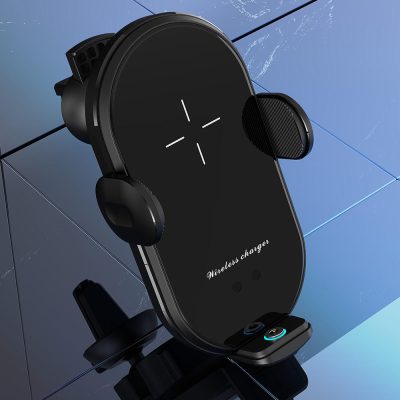Car wireless chargers are becoming increasingly popular as they offer a convenient and hassle-free way to keep your devices powered up while on the go. However, like any technology, they come with their own set of pros and cons. Here’s a closer look at what you need to know about car wireless chargers:
Pros
- Convenience:
- No Cables: Wireless chargers eliminate the need for cables, making it easier to keep your workspace organized and clutter-free.
- Easy Access: With a wireless charger, you can quickly place your device on the pad and start charging without having to fumble with cables or connectors.
- Safety:
- Reduced Distractions: By minimizing the need to plug and unplug cables, wireless chargers can help reduce distractions while driving, potentially improving safety.
- Automatic Alignment: Many wireless chargers come with features that automatically align your device with the charging pad, ensuring efficient and safe charging.
- Compatibility:
- Wide Range of Devices: Many modern smartphones and other devices are compatible with wireless charging, making it a versatile option for keeping your gadgets powered up.
- Integration with Advanced Technology:
- Seamless Experience: Wireless chargers can be integrated with other advanced technologies in your car, such as infotainment systems and voice control, providing a seamless and cohesive user experience.
Cons
- Charging Speed:
- Slower Than Wired: While wireless charging has improved in recent years, it is generally slower than wired charging. This can be a drawback if you need to quickly charge your device.
- Efficiency:
- Heat Generation: Wireless charging can generate heat, which can reduce the efficiency of the charging process and potentially damage your device if not properly managed.
- Power Loss: Some power is lost during the wireless charging process, meaning that it may not be as efficient as wired charging in terms of energy usage.
- Cost:
- Higher Price: Wireless chargers for cars can be more expensive than wired chargers, especially if you opt for high-end models with additional features.
- Placement and Accessibility:
- Limited Positions: Wireless chargers are typically mounted in specific locations in the car, such as the center console or dashboard. This can limit the positions in which you can place your device while it’s charging.
- Obstruction: Depending on the design and placement of the wireless charger, it may obstruct other features or controls in your car.
- Compatibility Issues:
- Not All Devices Supported: While many modern devices are compatible with wireless charging, some older or budget-friendly models may not be. This can limit the versatility of wireless chargers for some users.
Conclusion
Car wireless chargers offer a convenient and hassle-free way to keep your devices powered up while on the go, but they also come with their own set of pros and cons. Before investing in a wireless charger for your car, it’s important to weigh the benefits and drawbacks based on your specific needs and preferences. Consider factors such as charging speed, efficiency, cost, compatibility, and placement to ensure that you choose the right wireless charger for your needs.









